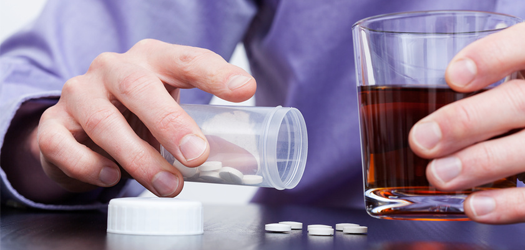Article Contributed By: American Addiction Centers Staff

Antidepressants are effective medications that are prescribed and used for the treatment of various conditions, including:
- Major depressive disorders
- Obsessive compulsive disorder
- Anxiety disorders
- Substance abuse
- Chronic pain
- Eating disorders
Prescription Drug Use in the United States
The use of these medications has become more widespread in the United States. According to a report released by the National Center for Health Statistics (NCHS), antidepressants were the third most common prescription medication taken by Americans in 2005 – 2008 [1].
Also in the same time frame, the rate of antidepressant use in the United States increased by almost 400% among teens and adults [1].
Common Prescription Drugs
Antidepressant medications vary based on their chemical function in the brain.
There are several classes of antidepressant medications that are commonly used, including:
- Selective Serotonin Reuptake Inhibitors (SSRIs)
- Serotonin-norepinephrine reuptake inhibitors (SNRIs)
- Tricyclic antidepressants (TCAs)
- Monoamine oxidase inhibitors (MAOIs)
Some of the more well-known antidepressants include:
- Prozac
- Zoloft
- Wellbutrin
- Paxil
- Celexa
- Lexapro
- Luvox
- Cymbalta
- Effexor
Risks of Prescription Drug Use
While appropriate use of antidepressant medication has been shown to be effective in the treatment of several health conditions, there are risks associated with these prescriptions as well. As with all medications, usage should be under the supervision of a qualified physician and pharmacist, who are properly managing dosage and treatment.
In order for antidepressants to work as intended, these medications must be taken on a consistent basis to establish a steady level within the body. It is not advisable to start and stop antidepressants, as this can result in worsening symptoms.
Because antidepressants can interact with other medications, supplements, and alcohol, it is important to evaluate your lifestyle prior to starting an antidepressant. The casual consumption of alcohol while on antidepressants may seem harmless, but this can actually pose many health risks.
How Prescription Drugs Interact with Alcohol
The interaction of alcohol and antidepressants can involve dangerous symptoms, such as the following:
-
Increased Depressive Symptoms:
Alcohol can actually counteract the benefits of an antidepressant, thereby increasing symptoms of depression. While alcohol may seem to elevate moods and dispositions, these effects are temporary as the alcohol interacts with the medication.
-
Impaired cognition:
The combination of alcohol and antidepressants could impact motor skills, coordination, and judgment. Having compromised cognition can impair your ability to carry out simple tasks or put you at risk for endangering yourself and others.
-
Risk of sedation:
Antidepressants may cause feelings of drowsiness, and the mix with alcohol may intensify this side effect. The use of alcohol with an antidepressant can influence a sedated-like feeling, which can severely impair normal functions.
-
Increased risk of alcohol misuse:
Many of the conditions treated with antidepressants are “co-occurring” conditions. This means that these disorders may commonly develop with other types of diseases.
For example, individuals who struggle with depression are at greater risk for addiction, substance abuse, and eating disorders. While one condition is being treated, it is common that another disorder may develop. If you or a loved one is struggling with alcohol dependence, it is important to address this prior to beginning an antidepressant medication.
The Benefits of Prescription Drugs
When used appropriately and under a physician’s discretion, antidepressants can be a helpful treatment regimen for many conditions, playing a part of the puzzle that improves quality of life for countless individuals. As with all medications, it is important to discuss your lifestyle with your doctor and understand any possible interactions that may occur as you begin your antidepressant.
The use of alcohol while taking an antidepressant medication can be detrimental to your recovery and treatment process. Ensure you are following the most effective protocol with your prescription and discuss any concerns with your doctor.
References:
[1]: National Center for Health Statistics, http://www.cdc.gov/nchs/index.htm
Last Updated & Reviewed By: Jacquelyn Ekern, MS, LPC on June 5, 2014
Published on AddictionHope.com, Treatment & Help for Alcohol and Substance Abuse
